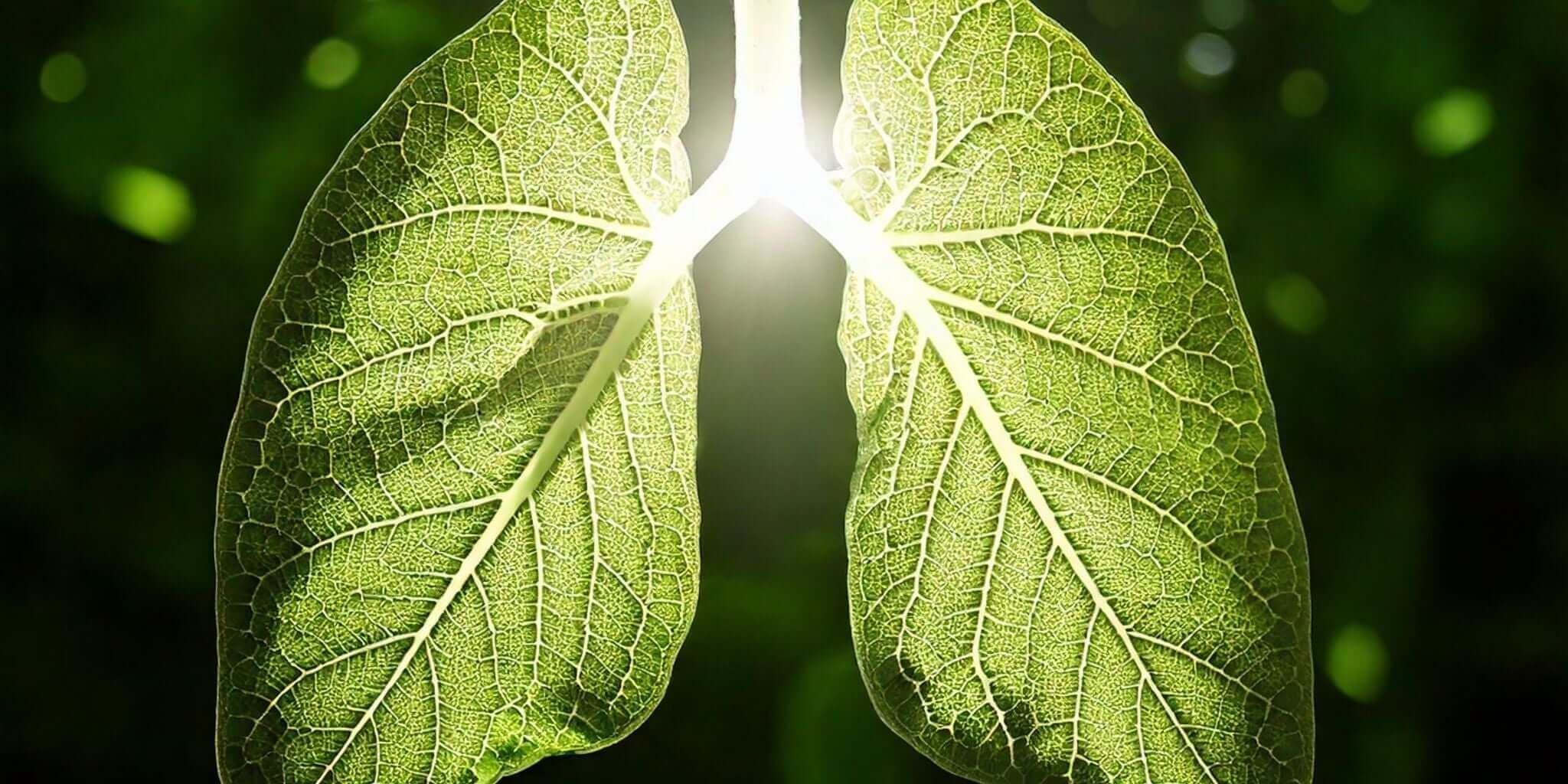A Breath of Fresh Air
In our modern world, the Lungs are constantly exposed to harmful pollutants, allergens, and toxins. Over time, this exposure can affect breathing, energy levels, and overall health. While the body naturally works to cleanse the lungs, incorporating herbs into your wellness routine can provide additional support.
Herbs like Mullein, Peppermint, and Thyme have been used for centuries to detoxify the respiratory system, reduce inflammation, and promote clear breathing. Let’s explore how these powerful plants can help you breathe easier.
Why Lung Health Matters

Your lungs play a critical role in delivering oxygen to your body and removing carbon dioxide. However, poor air quality, smoking, and certain lifestyle factors can hinder their efficiency.
Common Challenges to Lung Health
- Air Pollution: Exposure to dust, smog, and chemicals irritates the respiratory tract.
- Smoking: Tobacco and other pollutants damage lung tissues over time.
- Allergens: Pollen and mold can trigger inflammation and mucus buildup.
The Benefits of Lung Cleansing
- Improves oxygen intake and energy levels.
- Reduces mucus and inflammation for clearer breathing.
- Supports overall immune function and well-being.
The Surprising Connection Between Herbs and Ancient Lung Care
Throughout history, herbal remedies have played a vital role in lung health, often intertwined with cultural practices and ancient beliefs.
1. Traditional Chinese Medicine (TCM)
In TCM, herbs like Licorice Root and Ginger were staples in lung-cleansing formulas. Practitioners believed these herbs balanced "Qi" (life force) in the lungs, enhancing overall vitality. For example, Licorice Root was used not only for its soothing properties but also as a harmonizer, amplifying the effects of other herbs in lung tonics.
2. Native American Traditions
Native American tribes used Mullein Leaves in ceremonial smudging rituals and as an herbal remedy. The smoke was believed to purify the lungs and airways, while Mullein tea was consumed to ease respiratory discomfort.
3. Ancient Ayurvedic Practices
In Ayurveda, Turmeric was considered a sacred herb for purifying the body, including the respiratory system. It was often combined with warm milk or honey to create a golden drink, believed to clear mucus and invigorate the lungs.
4. Ancient Egypt’s Eucalyptus Love
The ancient Egyptians revered Eucalyptus for its decongestant properties. Eucalyptus-infused waters were used in baths and steam therapies to combat breathing difficulties caused by the desert air.
5. Folk Medicine Across Europe
In medieval Europe, Thyme was commonly brewed into teas or added to healing broths to protect against infections. Known as a "lung cleanser," it was a go-to remedy during outbreaks of respiratory illnesses.
These historical uses reveal that the connection between herbs and lung health isn’t new—it’s a time-tested tradition that blends nature’s wisdom with human ingenuity. By embracing these remedies today, we continue a legacy of natural wellness.
How Herbs Support Lung Cleansing

Herbs offer a natural, gentle way to support your body’s detoxification process.
Key Benefits of Lung-Cleansing Herbs
- Anti-Inflammatory Effects: Herbs like Turmeric reduce swelling in the airways.
- Expectorant Properties: Mullein and Peppermint help expel mucus and clear congestion.
- Immune Support: Thyme and Eucalyptus protect against infections and respiratory illnesses.
- Antioxidant Power: Ginger and Licorice Root combat oxidative stress caused by pollutants.
Top Herbs for Cleansing the Lungs

Mullein
- Benefits: Soothes irritated airways, reduces inflammation, and clears mucus.
- How to Use: Brew into tea or inhale steam for relief.
Peppermint
- Benefits: Opens airways, reduces inflammation, and provides a cooling sensation.
- How to Use: Add to teas or use essential oils in a diffuser.
Thyme
- Benefits: Antimicrobial properties combat infections and support respiratory health.
- How to Use: Use in teas or as a steam inhalation.
Eucalyptus
- Benefits: Acts as a natural decongestant and clears blocked airways.
- How to Use: Add to a diffuser or use for steam therapy.
Licorice Root
- Benefits: Soothes the throat, reduces inflammation, and clears mucus from the lungs.
- How to Use: Brew into a sweet, calming tea.
Ginger
- Benefits: Detoxifies the lungs and reduces inflammation.
- How to Use: Brew into tea or add to your meals.
DIY Recipes for Lung Cleansing

1. Mullein and Peppermint Detox Tea
Ingredients:
- 1 tsp dried Mullein Leaves
- 1 tsp dried Peppermint Leaves
- 1 cup boiling water
Instructions:
- Combine Mullein and Peppermint in a cup.
- Pour boiling water over the herbs and steep for 10 minutes.
- Strain and sip for soothing respiratory relief.
2. Thyme and Eucalyptus Steam Therapy

Ingredients:
- 1 tbsp dried Thyme
- 5 drops Eucalyptus Oil
- 1 bowl of steaming hot water
Instructions:
- Add Thyme and Eucalyptus Oil to the bowl.
- Place a towel over your head and inhale deeply for 5-10 minutes.
3. Licorice Root and Ginger Immunity Tea

Ingredients:
- 1 tsp dried Licorice Root
- 1/2 tsp grated Ginger Root
- 1 cup hot water
Instructions:
- Combine Licorice Root and Ginger in a teapot.
- Pour hot water and steep for 10 minutes.
- Strain and enjoy a warming, lung-cleansing tea.
4. Ginger and Turmeric Lung Detox Elixir

Ingredients:
- 1/2 tsp grated Ginger Root
- 1/2 tsp Turmeric Powder
- 1 cup warm water
- 1 tsp honey (optional)
Instructions:
- Add Ginger Root and Turmeric Powder to a cup of warm water.
- Stir well to combine and let it steep for 5-7 minutes.
- Strain if needed and sweeten with honey.
- Sip slowly to enjoy the anti-inflammatory benefits.
Benefits: This powerful duo detoxifies the lungs, reduces inflammation, and strengthens the immune system.
5. Oregano and Thyme Respiratory Tea

Ingredients:
- 1 tsp dried Oregano Leaves
- 1 tsp dried Thyme Leaves
- 1 cup boiling water
- Lemon wedge (optional)
Instructions:
- Combine Oregano and Thyme in a teapot or cup.
- Pour boiling water over the herbs and let steep for 10 minutes.
- Strain and add a squeeze of lemon for extra flavor and vitamin C.
- Drink warm to support respiratory health.
Benefits: This tea is rich in antimicrobial properties to cleanse the lungs and protect against respiratory infections.
Incorporating Herbs Into Your Daily Routine
Herbs are most effective when used regularly. Here’s how to seamlessly include them in your day:
Morning
- Start your day with a cup of Mullein and Peppermint Tea to open your airways.
Midday
- Use a Thyme and Eucalyptus steam to refresh and cleanse your lungs.
Evening
- Sip Licorice Root and Ginger Tea to soothe your throat and prepare for restful sleep.
Consistency is key to achieving and maintaining healthier lungs.
Lifestyle Tips to Enhance Lung Health

Pairing herbal remedies with these practices can optimize your respiratory health:
- Quit Smoking: This is the most important step to protect your lungs.
- Stay Active: Exercise regularly to improve lung capacity and circulation.
- Hydrate: Drinking water helps thin mucus and clear airways.
- Purify Air: Use air purifiers or keep plants that clean indoor air.
Frequently Asked Questions About Lung-Cleansing Herbs
Are these herbs safe for daily use?
Most herbs are safe when consumed as directed. However, consult a healthcare provider if you have existing conditions.
Can these herbs help with chronic respiratory issues?
While herbs can provide relief, chronic conditions like asthma or COPD should be managed with medical advice.
How long does it take to see results?
Immediate relief can be felt with steam therapy, but consistent use over weeks provides the best results.
Take a Deep Breath Together with Natural Lung-Cleansing Herbs

Your Lungs are your body’s life force—protecting and cleansing them is essential for overall health. Herbs like Mullein, Peppermint, and Eucalyptus offer natural and effective solutions for detoxifying the respiratory system and promoting clearer breathing. Incorporate these herbs into your daily routine to breathe easier and feel revitalized.





